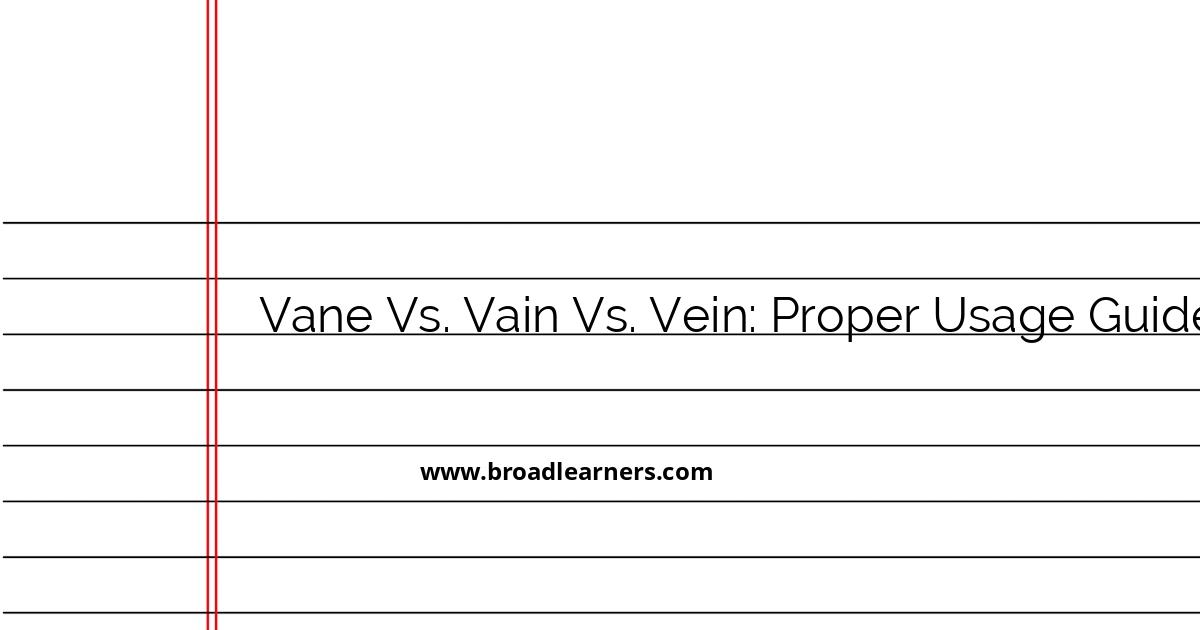The words 'vane', 'vain', and 'vein' are homophones in the English language, meaning they sound the same but have different meanings and uses. Understanding these differences is crucial for accurate communication. Below, we provide a comprehensive guide to help you identify and use these words correctly:
Definition and Usage Explained
- Vane
- A vane is a flat, thin, or slotted piece of material. It generally refers to parts of machines or structures that regulate airflow or indicate wind direction, such as a weather vane. Vanes are commonly found in mechanical devices like turbines and engines.
- Vain
- The term vain has multiple meanings, most commonly describing someone with excessive pride in their appearance or achievements. It can also mean something that is futile or unsuccessful, essentially having no real substance or effect.
- Vein
- A vein is a tube within the body that carries blood back to the heart. In geology, it refers to a mineral deposit within a rock formation. In literature, "in the same vein" is often used to indicate something done in a similar style or context.
Example:
The weather vane atop the barn indicated that the wind was blowing from the north.
Example:
Her efforts to save the project were in vain as the team decided to abandon it.
He was too vain to admit that he might need help with the task.
Example:
Doctors inserted a needle into his vein to administer the medication.
The mountain was rich with veins of gold and silver, attracting many prospectors.
Detailed Examples of Usage in Sentences
-
The engineer explained that each vane in the jet engine played a crucial role in optimizing air pressure and flow.
-
The artist believed that her work was not produced in vain, as it sparked meaningful conversations in the community.
-
The nurse tied a tourniquet to make it easier to locate a vein for drawing blood.
By understanding and observing these definitions and examples, you can ensure precise usage of vane, vain, and vein in your writing and communication. Proper usage not only conveys your expertise in grammar but also helps avoid misunderstandings.

Did I miss anything? Respond below